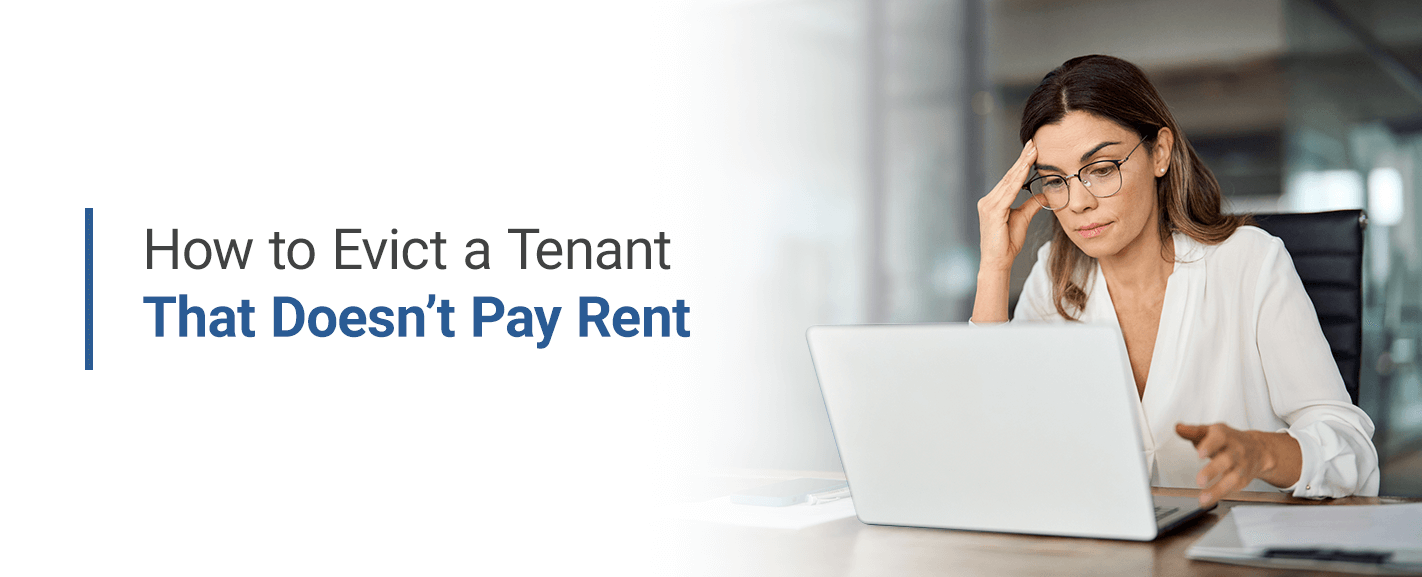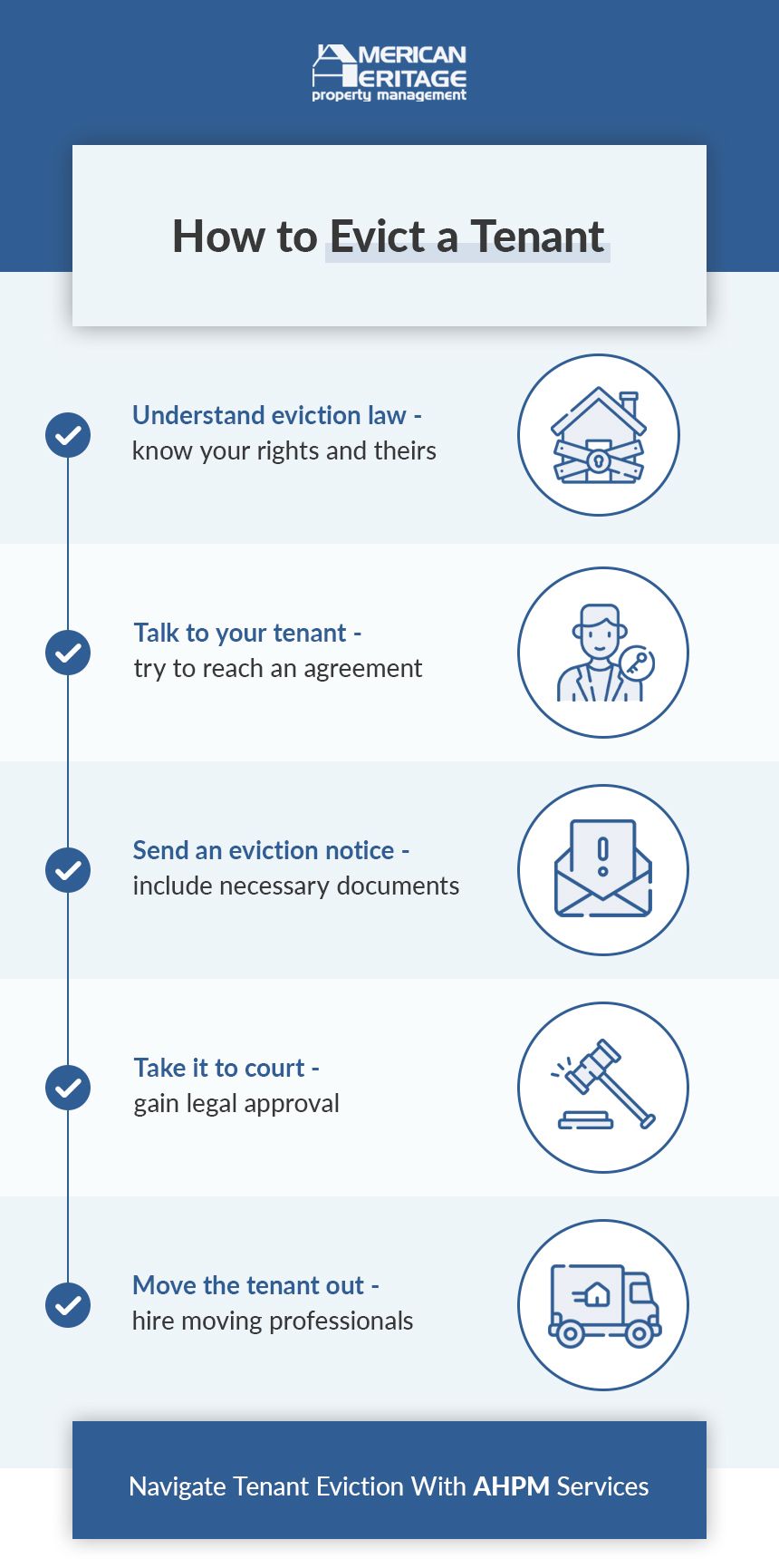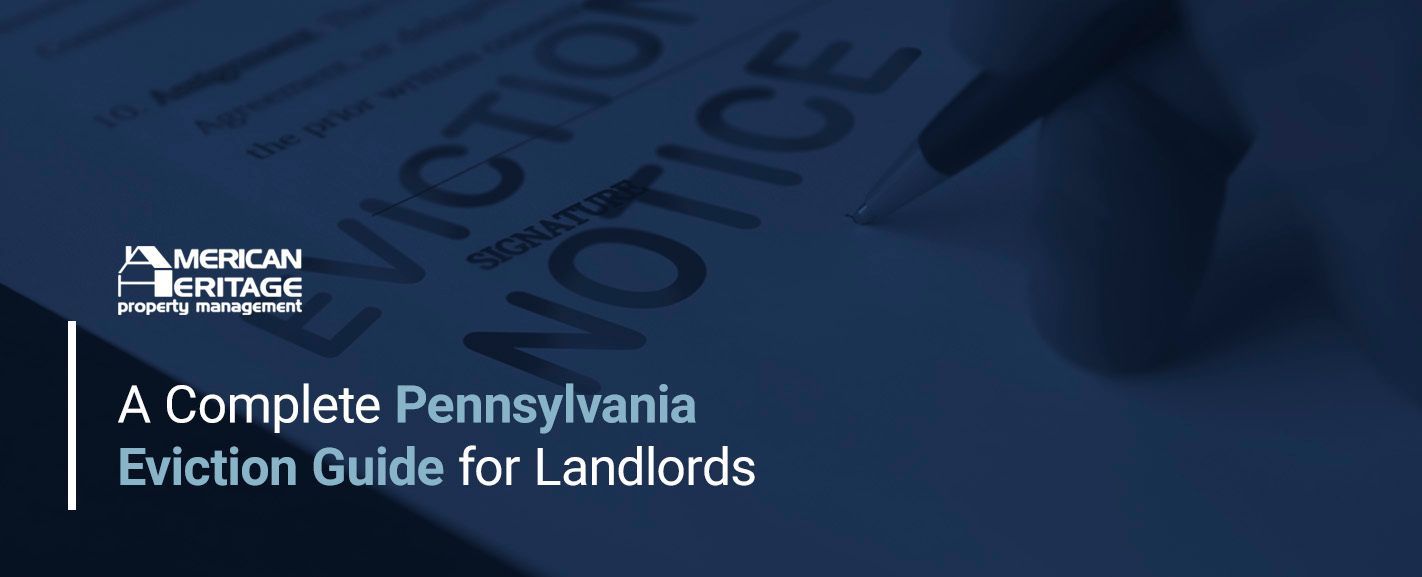How to Evict a Tenant That Doesn't Pay Rent

Becoming a landlord can be a great way to build equity in your property, pay off the mortgage or put some extra money in your pocket. The building itself really does all the work. You just collect the rent every month and ensure the property is well-maintained.
Your job becomes more complicated when dealing with a tenant who fails to pay rent. Managing your own rental property can be stressful and challenging due to legal complexities, potential disputes and financial setbacks. Whether they lost their job or are facing unexpected medical bills, you may agree to terms that allow your tenant to make late payments and catch up on the rent within the agreed-upon amount of time.
There are other times, however, where the only solution is to evict those non-paying tenants. It's crucial to approach the situation with a clear understanding of the legalities and best practices involved to resolve the eviction process efficiently.

What Is the Process of Evicting a Tenant?
As a landlord, your goal in evicting a tenant is to protect your investment and maintain a steady rental income. That's why it's important to act swiftly and understand the lawful, practical steps involved.
Learn About Eviction Law
The first step to evict someone who doesn't pay rent is understanding both your and their legal rights. State law determines what you must do to evict a tenant, so become familiar with the landlord-tenant laws in your state.
Talk to the Tenant
This step is often overlooked, but it could save you a lot of trouble.
Start by discussing the situation with your tenant to identify their challenges and explore possible solutions, such as negotiating a structured payment plan. Make sure your tenant knows that you are aware of the overdue rent. By avoiding this conversation, you might unintentionally signal to them that non-payment is acceptable. A face-to-face conversation can establish a personal connection, making it more likely for your tenant to accept responsibility. Follow up regularly until you have resolved the rent issue.
Secure Your Documentation
Eviction is a legal process that requires proper documentation. Make sure you have a signed lease that clearly outlines your tenant’s obligations to you. If you don’t have a written lease, collect data to prove that the tenant pays you a certain amount of money every month.
This paper trail will show that a verbal rental agreement is implied. Collect copies of canceled checks or a bank statement that shows monthly deposits. Also, gather all text messages or email exchanges that include any temporary agreement from the tenant to pay a certain portion of the back rent by a particular date.
Give the Proper Eviction Notice
If a notice period isn't clearly outlined in your tenant agreement, then the length of notice you'll need to provide will depend on the reason you want to get rid of the tenant, such as not paying rent). Follow the details outlined in your state law for how to notify a tenant of eviction.
You could post the notice to the tenant’s door or hand it to an adult on the premises. Depending on your state laws, sending notice only via mail could be considered void. Details are important in this step. Follow the law and collect documentation of your actions.
Take It to Court
If your tenant does not respond to the eviction notice, file it with the court. Check with the court clerk to be sure you are in the right jurisdiction and have the correct form completed. Follow the proper court process to avoid long delays or invalidating your complaint. Depending on state laws, a court-ordered eviction may be mandatory to evict a tenant who doesn't pay rent.
Appear at the Court Hearing
Your case will be thrown out if you fail to appear, whereas you may be awarded a default judgment if your tenant doesn't show. Be prepared to explain the problem clearly and provide documentation supporting your claims. The judge will ask why you want to evict your tenant, so stick to the facts and be professional. You will have to present evidence of a rental agreement between you and the tenant, after which the tenant can present their side of the story.
Remember, you cannot prove the tenant did not pay you. It is up to the tenant to prove that they have paid.
Move the Tenant Out
Do not handle your tenant’s belongings yourself or attempt to change the locks on the apartment until the eviction is legally completed. Instead, hire a moving company to handle the eviction in compliance with the law. You will have to cover the moving company's costs upfront, but if you save your receipt, you may be able to recoup these costs in court.
Once the tenant has vacated, have a locksmith change the locks. This is not a suitable time for a DIY approach. You will want the locksmith as a witness to prove that you changed the locks only after the tenant vacated, protecting you from legal disputes.
Take Photos
Anytime a tenant moves out under adverse conditions, photograph the apartment's condition before cleaning for the next tenant. You never know when you will need those photos to prove how the apartment was left. In many states, the standard is “broom swept” for vacating a rental unit. Your photos will show whether this condition was met.
Find a New Tenant
Each time you look for a new tenant, you have the opportunity to improve your applicant screening process and reduce the risk of another eviction situation. Once the rental unit is vacant, clean it thoroughly and prepare the space before showing it to potential renters. A well-maintained, attractive apartment will attract quality tenants.
How to Evict a Non-Paying Tenant
You have to have a valid cause to evict a tenant. The eviction process is stressful and uncomfortable and should be avoided if possible. You certainly do not want to initiate an eviction when you don't have a legal reason or sufficient proof. Although you may try to avoid going to court, it's always best to prepare your case as if it will.
When you have a tenant in your house, it's easy to develop a friendship. Be cautious about sharing personal or business details. If you ever have to evict your tenants, they may use that information to discredit your claims.
Building a friendship with your tenants can make the situation more difficult if issues arise. While it may foster goodwill, it can lead to misunderstandings where tenants assume that your friendly connection means more flexibility for them.
It's best to keep your landlord-tenant relationship professional, allowing you to handle difficult situations more smoothly, especially when it comes time to issue an eviction notice. You can be friendly, but keep your communication brief and unemotional.
How to Start the Eviction Process
It's unpleasant to evict a tenant, but if they are not paying rent and refuse to leave, you don’t have a choice. Renting property is a business, whether you have one rental unit, four or 24. You became a landlord to earn money with your property. You provide a clean, well-maintained home, and the tenant pays you for it. It's a business arrangement that works best when both parties hold up their end.
The eviction process begins as soon as there is evidence that the tenant is struggling to make rental payments on time, even if you do not end up evicting the tenant. At this point, you need to begin learning how to evict a non-paying tenant, what your local law says about eviction and collecting documentation so that if removing a tenant from your rental property is warranted, you will be ready to move swiftly.
How to Make Eviction Easier
No one wants to be that stereotypical evil landlord who throws people out into the street. There is an emotional component to evicting a tenant from your property that can be difficult to overcome. Unfortunately, if your tenant stopped paying rent, you have no choice but to evict.
Evictions are rarely straightforward. It can be frustrating when a tenant fails to pay rent and continuously makes excuses. By the time eviction becomes necessary, you'll likely have invested a considerable amount of time and emotional energy into the situation.
Here are some tips to make evicting a tenant easier.
Use a Written Rental Agreement
When your tenant moves in, they should sign a written agreement. In that lease, you need to clarify the procedures for late rent payments. Charging a penalty fee for late rent will make tenants take this deadline more seriously. Spell out the eviction procedure in the rental agreement. Your tenant’s signature on this agreement will constitute their acceptance of these terms and give them notice of what to expect if they don’t pay their rent.
Send Late Rent Notices
Any time rent is late, send a written notice to the tenant documenting the delinquency and referring to the terms of the rental agreement. Never let late rent slide. Tenants need to know you are serious about the rental terms and that late rent will not go unnoticed.
Learn the Law
Read up on rental property laws in your state now to stay on top of how things work. Understand the terms of eviction and the legal process for how to evict a non-paying tenant from your property. Find an attorney who can explain it to you, or go to the local court and ask the clerk some clarifying questions.
Screen Tenants Carefully
Require potential renters to fill out an application and wait for you to verify their information before agreeing to rent to them. Call their references to be sure they are legitimate. Credit score is an important indicator of how likely a potential tenant is to pay their rent on time. Talk to their employer about their work ethic and work history. Talk to a previous landlord about their behavior. Do a background check to be sure they do not have outstanding collections issues or other red flags.
Interview tenants when they come to look at the property. Make a note of what questions they ask. People give a lot of signs about whether they will be good tenants. You just have to know how to read them.
Maintain Your Property
A rental agreement is between two parties. The tenant has an obligation to you, as you have to the tenant. Always uphold your obligations to maintain the property and keep the apartment in good repair. If you are responsible for cutting the grass and plowing snow, make sure you do it in a timely manner. Do not give your tenant any reason not to uphold their end of the rental agreement.
Price It Right
A clean, well-maintained property will attract responsible tenants. The other advantage you have is the rental price. A cheaper rent will help you get a tenant faster, but it won’t help you keep them. Instead, use the price to attract better tenants. Pricing your rent a little higher, especially after going through an eviction, will help bring in renters who are financially responsible. The people who can afford a higher rent are making more money and may have a better job or longer work history.
Be patient and wait for the right tenant rather than renting for less to the first person who expresses interest.
How Trusted Support Can Help You Get Rid of a Tenant Not Paying Rent
Eviction is a time-consuming and stressful process, but it’s something that happens more often than you might think. In Pennsylvania alone, there have been 114,167
evictions filed in the past year. Taking these steps can help you avoid becoming one of those statistics. If you do need to evict someone, the process may be easier if you have a property management company to help you collect rent, keep track of late payments and handle the eviction process when necessary.
A professional property manager can also maintain your property for you. They can interview potential tenants, draft rental agreements and handle those late-night calls when the heat goes out. A property manager will communicate with tenants when rent is late or if they are parked on the lawn, keeping you out of uncomfortable situations with your tenants.
For all your property management needs, including tenant eviction, contact AHPM today.




